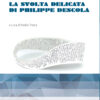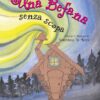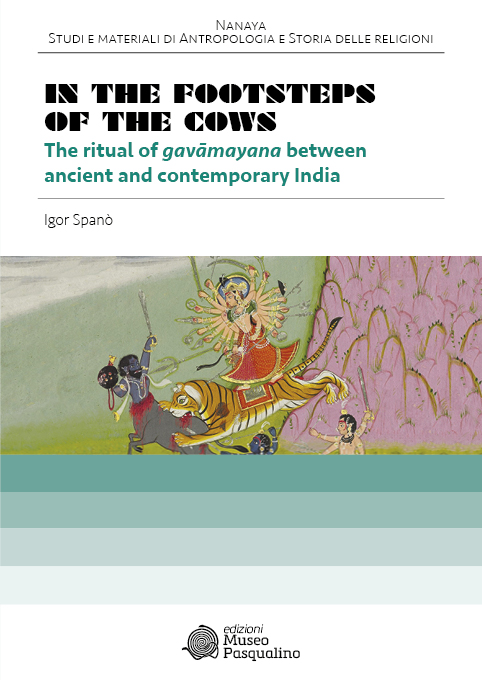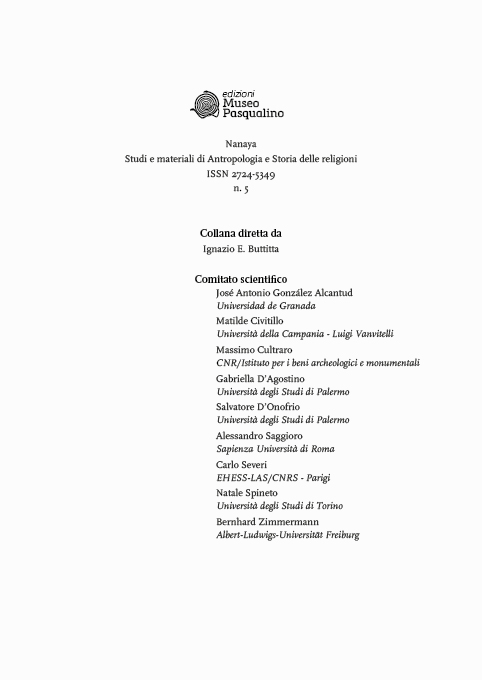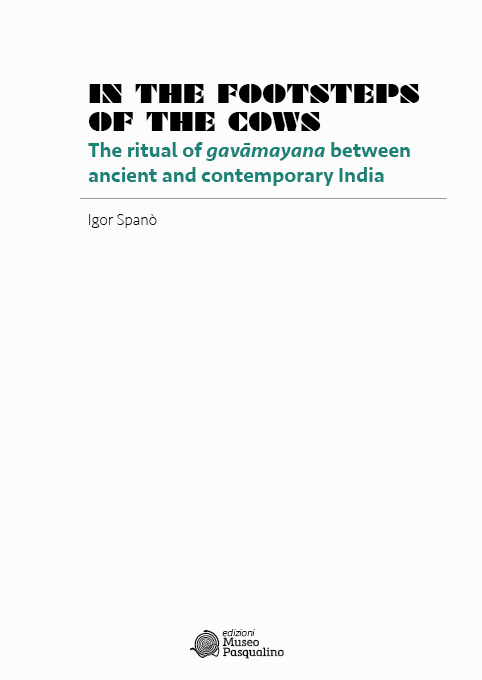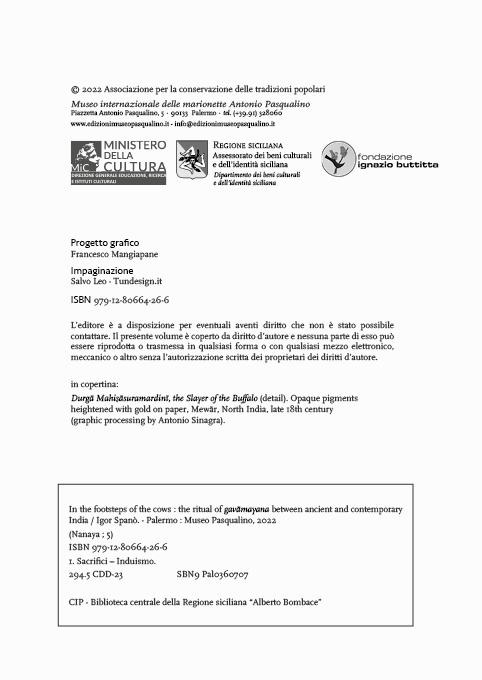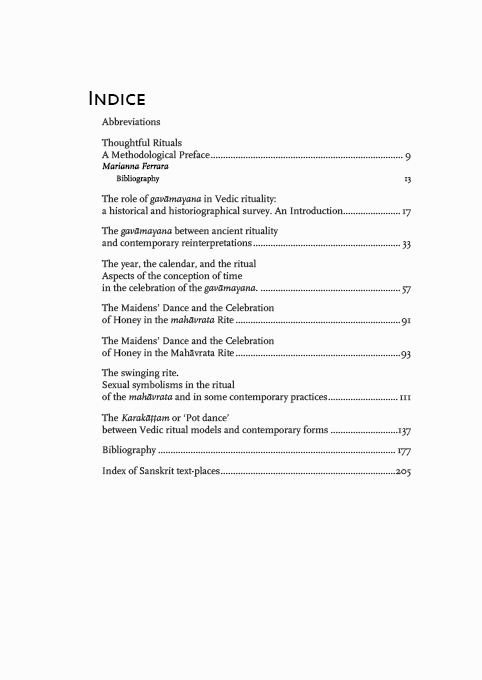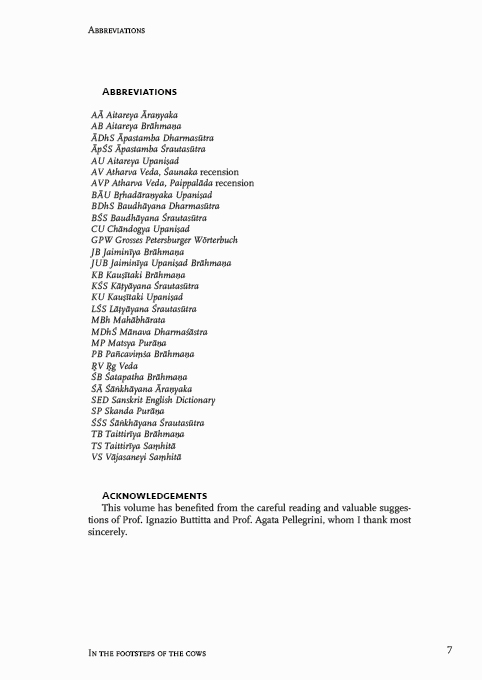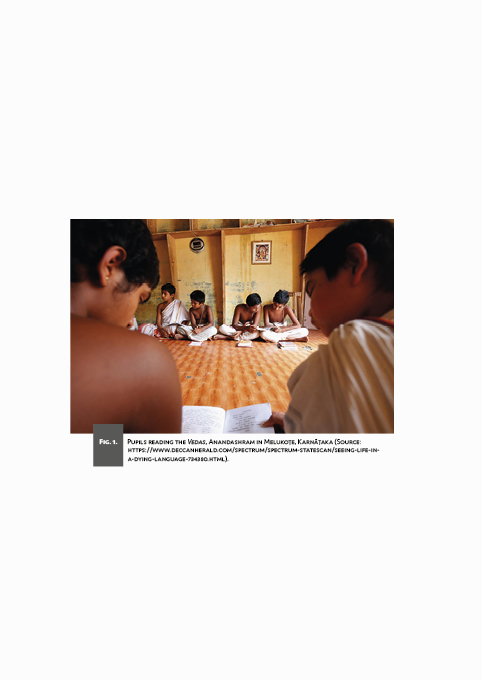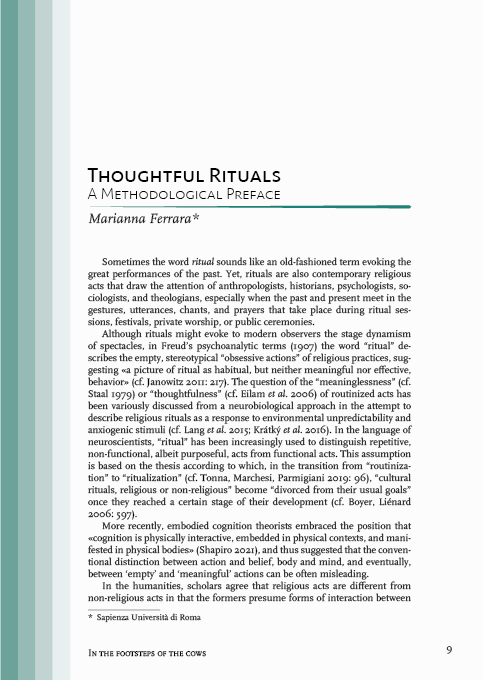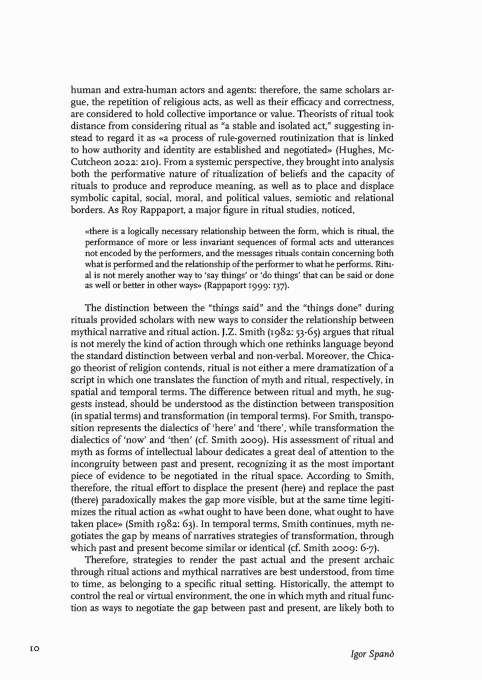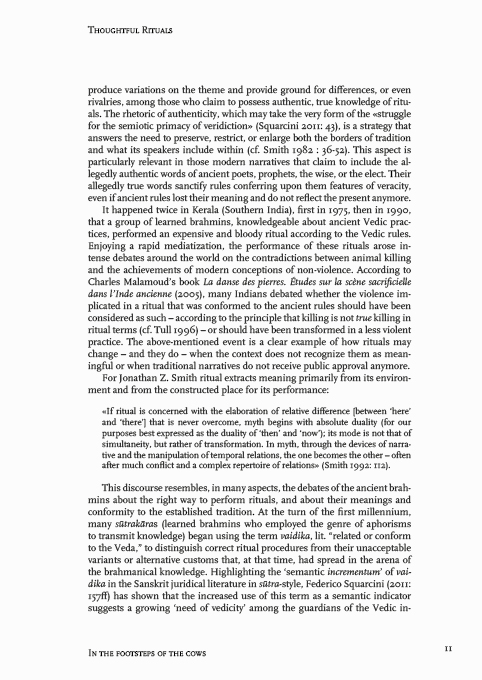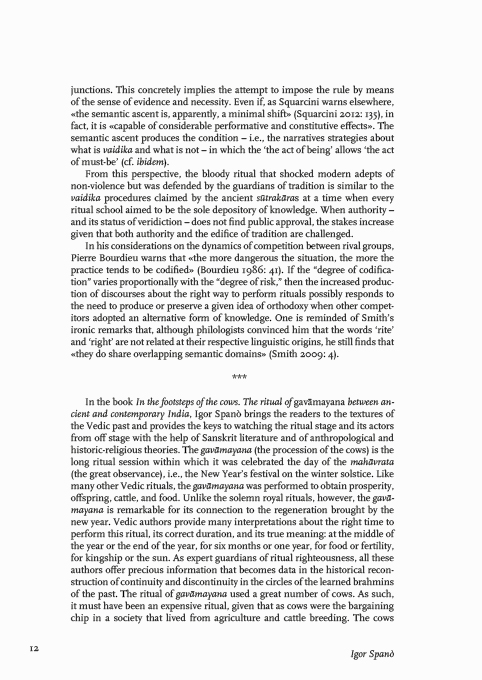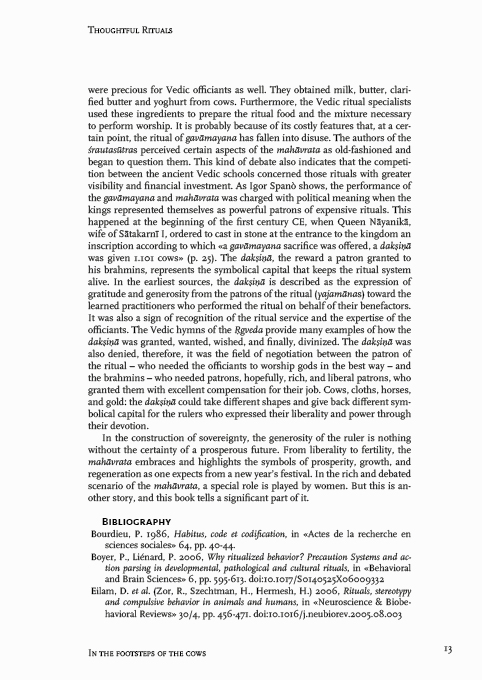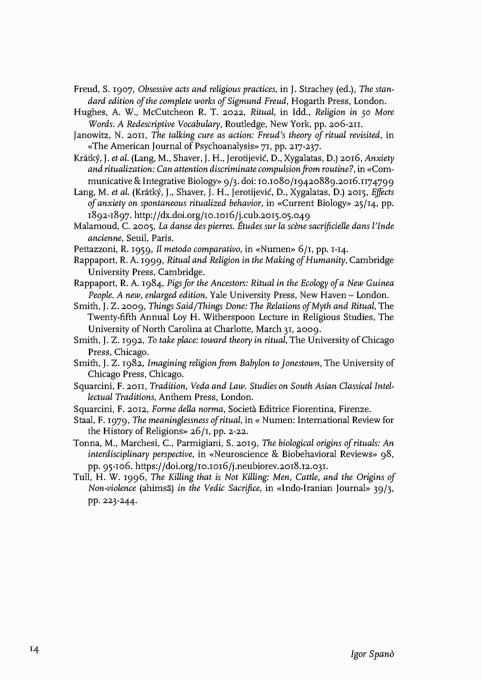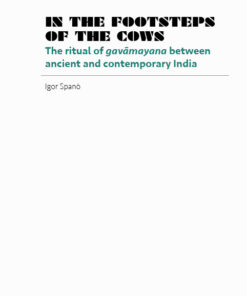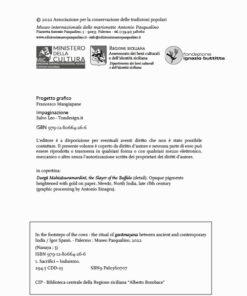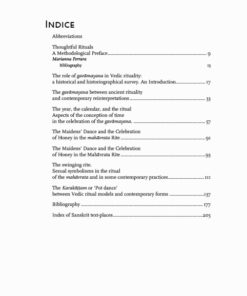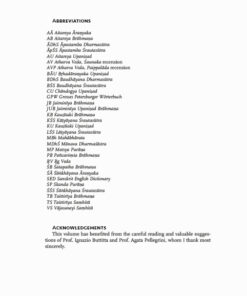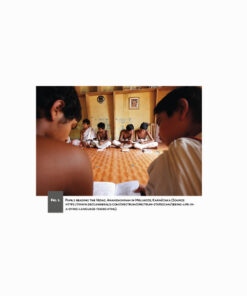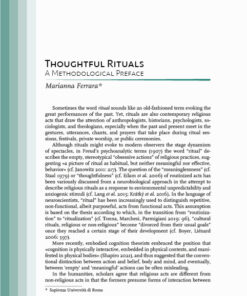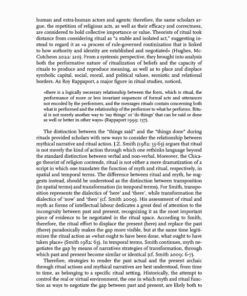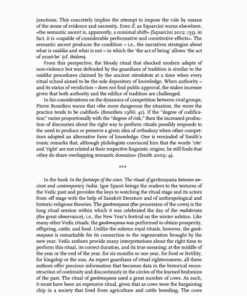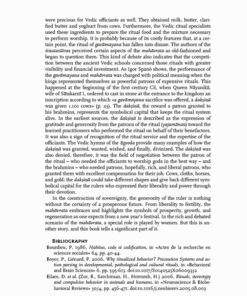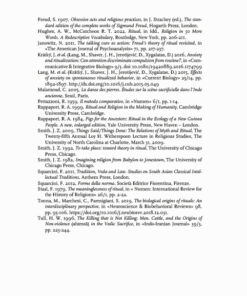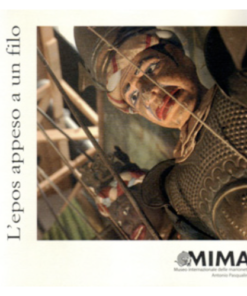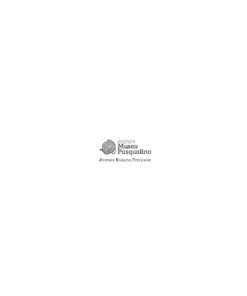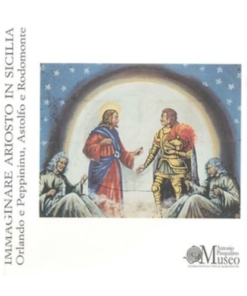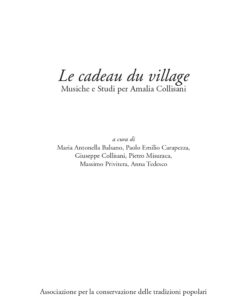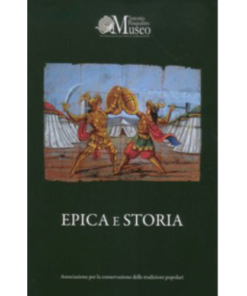In the footsteps of the cows
29,00€
In the footsteps of the cows
The ritual of gavāmayana between ancient and contemporary India
Igor Spanò
Edizioni Museo Pasqualino, Palermo 2022
Nanaya. Studi e materiali di Antropologia e Storia delle Religioni n.5
ISBN 978-12-80664-26-6
Codified in classical Vedic times (8th-4th century BCE), the gavāmayana (‘the cow path’) was a year-long ritual session (sām.vatsarika sattra), which accompanied the succession of months of the Vedic religious calendar and ended with the celebration of mahāvrata (‘the great vow’) during the winter solstice. Marking the conclusion of the arduous ritual journey, it celebrated rebirth and consecrated the beginning of the new year. The book conducts an investigation of gavāmayana based both on a philological analysis of the texts and on a historical-religious and anthropological perspective, focusing on ancient India, but also on some contemporary practices. The mahāvrata, in particular, seems to preserve the memory of very ancient ritual practices, whose representations reveal a complex play of symbolic exchanges linked to the alternation of the seasons and the growth of vegetation, to the myth of generation through emptying and relocating, within the perimeter of the civilised world and the law, what appears disruptive and anomic (such as sexuality). In the various chapters, not only the intertwining of themes of a political nature with those related to sexuality and the promotion of fertility emerge, but also certain symbolic continuities, whereby changes in the use of cultic and ritual elements do not exhaust their values with the decline of Vedic rituality, but find new meanings in India, albeit in different historical contexts.
Igor Spanò Graduated in Philosophy at the University of Palermo, where he later obtained his Ph.D. in Philosophy. From 2007/2008 to 2010/2011 he has been Adjunct professor of Indian Philosophies and Religions and of Indology and Tibetology at the University of Palermo. He is currently attending his second Ph.D. in Cultural Sciences at the same University and is an Adjunct professor of History of Religions at the University of Trento. He is a scholar of the religious phenomena of ancient and contemporary India, and he is attentive to a perspective that combines the tools of religious sciences, anthropology, and philosophy with the philological examination of the texts of the Vedic and classical Sanskrit tradition. He has also deepened his study of traditional transgender communities in India.
Related products
a cura di Rosario Perricone Edizioni Museo Pasqualino, Palermo 2004 Mostre n. 7 ISBN 978-88-97035-24-4 L’epica è quel genere narrativo che rappresenta con intento celebrativo gesta eroiche, miti cosmogonici e sacrificali, cronache di re e di nobili, concezioni religiose e filosofiche. Il poema epico, memoria e tradizione del passato, è un fatto artistico, una [...]
di Giuseppe Giordano Edizioni Museo Pasqualino, Palermo 2016 Suoni&Culture n. 3 ISBN 978-88-97035-20-6 Questo volume raccoglie i risultati di una decennale ricerca etnomusicologica sul canto liturgico e devozionale di tradizione orale in Sicilia. L’indagine – condotta principalmente attraverso la diretta osservazione “sul campo” – ha svelato uno scenario musicale contemporaneo piuttosto articolato che riguarda questo [...]
a cura di Alessandro Napoli, prefazione di Antonino Buttitta Edizioni Museo Pasqualino, Palermo 2009 Mostre n. 12 ISBN 978-88-97035-83-1 In questo catalogo Alessandro Napoli spiega come il racconto ariostesco, passando nel corso del tempo da una fruizione colta al pubblico popolare dell’opera dei pupi, abbia subito piccole e grandi modificazioni, aggiunte o soppressioni importanti, che [...]
a cura di Rosario Perricone fotografie di Giacomo Bordonaro, Dario De Blasi, Angelo Maggio, Calogero Russo Edizioni Museo Pasqualino, Palermo 2007 Mostre n. 10 ISBN 978-88-97035-81-7 Le immagini presenti in questo catalogo esprimono diversi modi di guardare, vedere, osservare e rappresentare la realtà dei rituali festivi in Sicilia. Quattro fotografi: Giacomo Bordonaro, Dario De Blasi, [...]
a cura di Rosario Perricone Edizioni Museo Pasqualino, Palermo 2017 Testi e Atti n. 8 ISBN 978-88-97035-30-5 Questo volume raccoglie alcune delle relazioni tenute in occasione del Convegno internazionale di studi Pitré e Salmone Marino a cento anni dalla morte, organizzato dall’ Associazione per la conservazione delle tradizioni popolari – Museo internazionale delle marionette Antonio [...]
di Berardino Palumbo Edizioni Museo Pasqualino, Palermo 2018 Testi e Atti n. 9 ISBN 978-88-97035-38-1 Il volume fornisce un quadro ragionato della situazione, al 2016, del campo di studi antropologico-culturali italiani, riflettendo intorno alle diverse vicende scientifiche, intellettuali, istituzionali e politiche che questi studi hanno vissuto in Italia e negli scenari internazionali nel corso degli [...]
a cura di M. A. Balsano, P. E. Carapezza, G. Collisani, P. Misuraca, M. Privitera, A. Tedesco Edizioni Museo Pasqualino, Palermo 2016 ISBN 978-88-97035-17-6 Testi e Atti n. 3 Il volume raccoglie ventisei contributi di vari autori italiani e stranieri (ventiquattro saggi e due composizioni, tutti inediti) in onore della musicologa Amalia Collisani (Palermo 1946), [...]
a cura di Mario Giacomarra Edizioni Museo Pasqualino, Palermo 2005 Testi e Atti n. 1 ISBN 978-88-97035-78-7 È un’analisi interdisciplinare sulle esperienze classiche, medievali e moderne della letteratura epico-cavalleresca: da Omero alla chanson de gestes, fino al teatro epico dell’opera dei pupi siciliani. Il teatro dei pupi è il dramma della vita che risolve [...]

